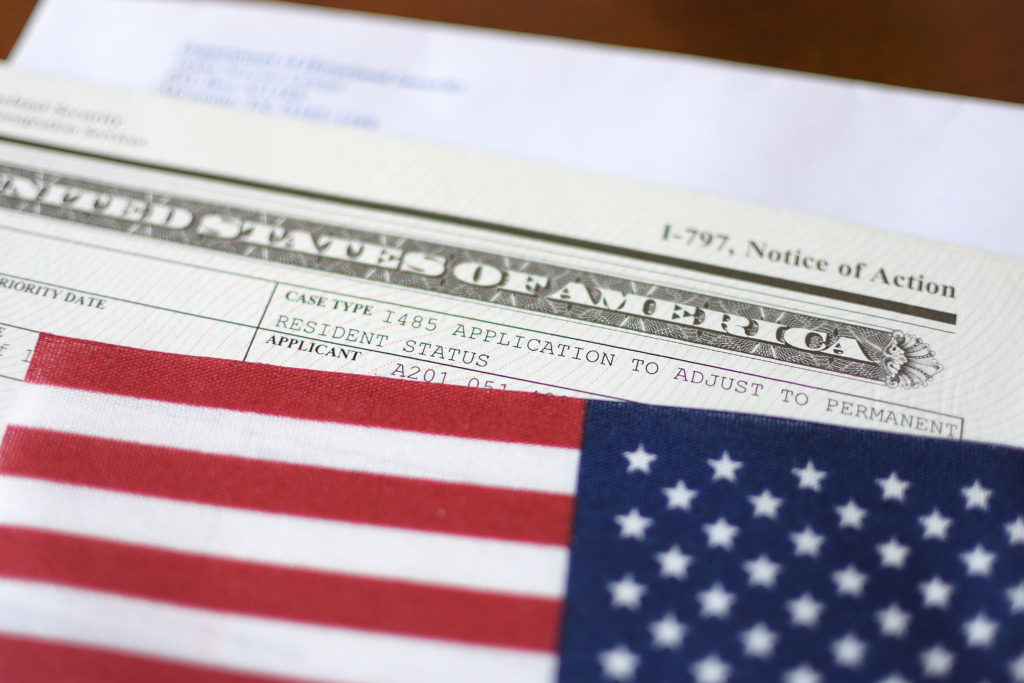Frequently Asked Questions On Immigration Matters
 The immigration process in the United States is a broad topic. People have a lot of pertinent and important questions when embarking on any kind of immigration process for the United States. We thought we’d dedicate a page to some of the questions we see frequently on some of these topics. It is difficult to address all questions but these are some of the most common. Of course, all of the questions below are addressing general scenarios and broader topics. Every case is different and might be contingent upon certain requirements or circumstances.
The immigration process in the United States is a broad topic. People have a lot of pertinent and important questions when embarking on any kind of immigration process for the United States. We thought we’d dedicate a page to some of the questions we see frequently on some of these topics. It is difficult to address all questions but these are some of the most common. Of course, all of the questions below are addressing general scenarios and broader topics. Every case is different and might be contingent upon certain requirements or circumstances.
Regarding Work Permits and Visas…
How can I obtain a work permit?
You can apply for an Employment Authorization Document if you meet certain requirements. These might include being granted Temporary Protected Status, a student in valid F1 status if you have a pending asylum application and other scenarios.
What kind of Work Visas are there?
There are a lot of possible options for people looking to work in the United States. These might vary by your current situation, country of origin, the type of work you do, etc. Here are some of the more common work visas:
H-1B: Person in a Speciality Occupation. This requires a higher education degree.
H-1B1: Free Trade Agreement (FTA) Professional. Requires a post-secondary degree involving at least four years of study.
H-2A: Temporary Agricultural Worker. For temporary or seasonal agricultural work.
H-2B: Temporary Non-Agricultural Worker. For temporary or seasonal work that is not agricultural.
As an Employer, can I sponsor an employee for Permanent Resident Status?
As an employer, you can sponsor a foreign national to become a permanent resident based on a permanent job offer. This requires a multi-step process but it can be done. Usually, the employer must obtain an Approved Application for Permanent Labor Certification from the U.S Department of Labor. Then there are several forms that follow including a From I-140, Immigrant Petition for Alien Worker. The foreign national must qualify under one or more of the employment-based immigrant visa categories.
What are some Temporary Work Visas?
There are a few temporary work visas you can obtain as well. These include Specialty Occupations, Exchange Visitors, Treaty Traders, Intra-Company Transferees, and Extraordinary Ability Visas.
On Gaining Permanent Residency…
What are some ways I can become a Permanent Resident?
There are several ways you can become a permanent resident but you must meet certain requirements. Some of the basic requirements include: currently in the U.S or a resident since 1972, have a family sponsor, an employee sponsor, engaged to a U.S citizen, refuge, diversity visa, or you are a Cuban national.
Is Getting Married to a U.S Citizen a fast way to Gain Residency?
Typically, a marriage to a U.S citizen makes the process faster. However, it is very important to note that USCIS will look closely at the marriage and make sure that it is not happening solely for immigration purposes. The petition will be denied if this is thought to be the case.
Can a Relative of Mine that is a U.S Citizen sponsor my residency?
People often obtain residency through the sponsorship of a relative. Yet, this is not as clear cut as it often seems. There are various categories in family-based immigration, some of which are given more preferences than others. For example, there is the First Preference which applies to unmarried sons and daughters of U.S citizens. The Second Preference applies to spouses and unmarried children of U.S permanent residents.
On Becoming a U.S Citizen…
How long does it take to become a U.S citizen?
The process of citizenship can technically begin when you get your green card. One of the requirements to become a U.S citizen is to have held a green card for at least five years. And while the process can take longer, the minimum time would be at least five to six years.
What are the requirements to become a U.S citizen?
Typically the main requirements include:
- 18 years of age or older
- Have been a permanent resident for at least 5 years
- Are of good moral character
- Can pass a citizenship test
- Can prove a period of continuous residence
- Read, write, and speak basic English
Other Questions…
If I’ve had my record expunged, should I still disclose what’s in it when applying for status?
Yes, it’s important to always be honest with agents of the USCIS. You always want to be honest about any arrests, convictions, etc.
How Do I Know I Need An Immigration Lawyer?
Regardless of whether you are applying for a work visa or residency, an immigration lawyer will ensure that you embark on the process without any mistakes. The paperwork on any transaction can stack up quite fast. A good immigration attorney will ensure you have all the paperwork, documentation, and proof needed.
Work with an Immigration Attorney You Can Trust
Here at The Law Offices of Rios, Parada & Seañez PLLC, we will answer every immigration question you might have. Call us today and we’ll get started on your case. Whether you are looking for an adjustment of status, citizenship, or green card.
